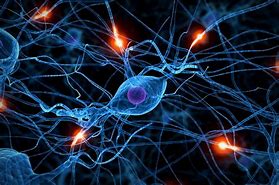When I’ve found myself lately discussing the potential negative influences of the Internet with people, I often hear others make the case that television has the same adverse effects on us that the World Wide Web tends to perpetuate. That is, others suggest that the Internet is conditioning us in much the same way that television previously did; that is by drawing us hypnotically into a particular reality that keeps us focused on the screen in front of us in a manner that is deeply manipulative in order to sell us certain advertising or shape our opinions concerning various areas of political discourse by attracting our attention in ways that narrow our focus through a certain loss of perspective that is being engendered within us.
Although this is in fact certainly true, what many people don’t realize is that there is a profound bottom-line difference between the way that television has habitually conditioned us in comparison to how the Internet does. This is simply that the Internet is not so much a seduction into a particular reality, like television is, but the reality itself by which we connect ourselves to the world in which we live. That is, the cyber world conditions us to think, act, and even remember along certain digital pathways inside our computers and phones that have become fused with the organic pathways inside our brains – a form of conditioning that is much more insidious than television having the power to program us to accept certain values to which we might become attracted.
Another major difference is that while television has the power to condition us by causing us to traverse certain internal pathways in our brains to which we are being directed, like when we watch our favorite political commentator without standing back to assimilate the full context of what he or she might be telling us, the cyber world, on the other hand, literally causes us to outsource our working memories and internal pathways to large search engines which have the power to control those same organic pathways from outside us. This they do through virtual algorithms, computer coding, and other non-organic entities which have the power to direct and control our own neuronal pathways inside our very organic brains by essentially assimilating them as their own.
So it is the digital pathways inside our computers and phones which control our organic pathways of thought and memory that tend to make any adverse effects of the Internet far more pernicious than the effects of television simply because with the Web our thoughts and memories, rather than simply being influenced and conditioned from entities outside us, like disingenuous advertising or manipulative newscasters, are being controlled from a place within us as those thoughts and memories merge with the virtual pathways of our digital devices. And so it becomes exponentially more difficult to apprehend clearly what is in fact happening to us. That is, unless we take the first step in recognizing that this process is something far deeper and more insidious that how television might have conditioned us in the past.
